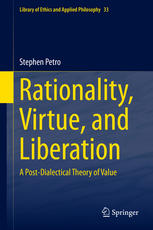

Most ebook files are in PDF format, so you can easily read them using various software such as Foxit Reader or directly on the Google Chrome browser.
Some ebook files are released by publishers in other formats such as .awz, .mobi, .epub, .fb2, etc. You may need to install specific software to read these formats on mobile/PC, such as Calibre.
Please read the tutorial at this link: https://ebookbell.com/faq
We offer FREE conversion to the popular formats you request; however, this may take some time. Therefore, right after payment, please email us, and we will try to provide the service as quickly as possible.
For some exceptional file formats or broken links (if any), please refrain from opening any disputes. Instead, email us first, and we will try to assist within a maximum of 6 hours.
EbookBell Team

4.8
64 reviewsThis book explores the overlooked but vital theoretical relationships between R. M. Hare, Alan Gewirth, and Jürgen Habermas. The author claims their accounts of value, while failing to address classic virtue-theoretical critiques, bear the seeds of a resolution to the ultimate question “What is most valuable?” These dialectical approaches, as claimed, justify a reinterpretation of value and value judgment according to the Carnapian conception of an empirical-linguistic framework or grammar. Through a further synthesis with the work of Philippa Foot and Thomas Magnell, the author shows that “value” would be literally meaningless without four fundamental phenomena which constitute such a framework: Logical Judgment, Conceptual Synthesis, Conceptual Abstraction, and Freedom. As part of the 'grammar of goodness,' the excellence of these phenomena, in a highly concrete way, constitute the essence of the greatest good, as this book explains.